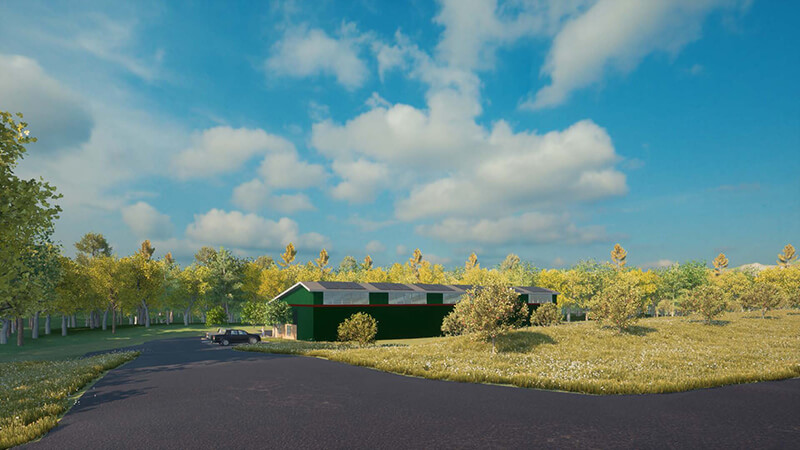Selectboard plans to get town garage flyer printed
With a special town meeting approaching on Aug. 9, the Charlotte Selectboard will send out a last-minute pitch to voters on the merits of its proposed town garage.
According to an estimate by Russell Construction Services, which provided a preliminary design, the building will cost $3 million, a sum that has raised eyebrows among residents.

“I don’t usually get phone calls, but I am,” board member Louise McCarren said.
Board Chair Jim Faulkner has, by his own account, explained “a dozen times” that — thanks to a federal infusion from the American Rescue Plan Act and accumulated reserves in the town’s highway funds — local taxpayers will face a bill only half that size if they approve the project. But as he sees it, residents have remained distracted by the larger total.
“I think what’s happening here is that we need to get more information out to the public,” Faulkner said.
On Monday, July 11, the selectboard finalized an informational flyer that will go out to all Charlotte households in the coming days. The one-pager points out that the construction will take place on land owned by the town and that the state of Vermont has already granted an access permit for the facility.
It also calls the building “fossil fuel-free,” based on plans for an electric heating system and a solar-ready rooftop, though the actual installation of photovoltaic panels may take place further down the line, as a separate project requiring additional funding. Faulkner acknowledged that the building could make use of a diesel- or propane-fueled backup generator.
Displaying computer-generated renderings at the board’s meeting, Faulkner emphasized the proposed garage’s aesthetic virtues, with a focus on its unobtrusiveness.
“This building is supposed to be inserted in the ground about 4 feet, so that reduces the height of it. The roofing overhang helps reduce the size of the building in terms of appearance,” he said. “All the trucks will enter from the back, from the west, so you won’t be seeing a bunch of trucks at the front of the building.”
Town administrator Dean Bloch has calculated that, for a Charlotter who owns a house worth $500,000, the project’s approval would result in an annual property tax increase of $72 at first, but that amount would decrease over the life of the 20-year bond.
The board, which will forgo issuing a request for bids from mailing companies, authorized a disbursal not to exceed $2,500. The board’s estimate for the cost of the flyers is $2,088. A quote from Burlington’s Queen City Printers — $1,310 for making 1,600 copies and stuffing envelopes — didn’t include the price of postage.

